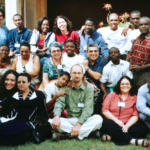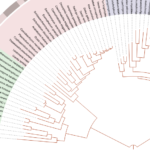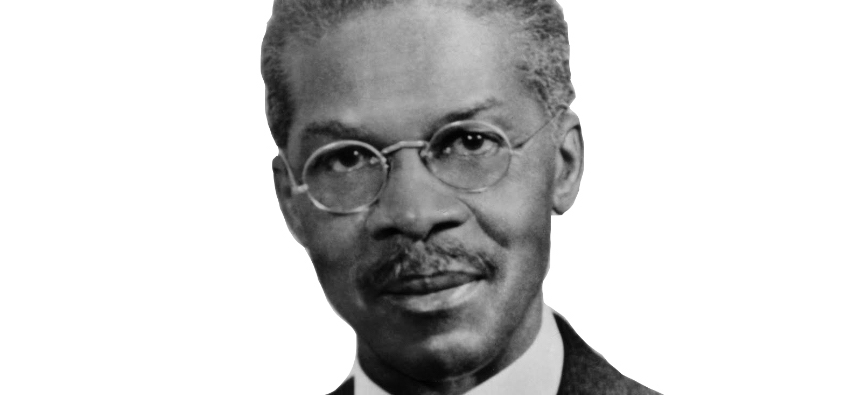
White Australia Policy
 Most us take a multicultural, multiracial reality in our stride – a normal and welcome part of life. It is a very recent development. For a Faith that arrived in Australia when the White Australia policy was the law, it inevitably raised questions for some of the newly enrolled Baha’is. How were they to square their religious beliefs – with the expectations of the society around them? And maybe with their own unexamined prejudices about their fellow human beings?
Most us take a multicultural, multiracial reality in our stride – a normal and welcome part of life. It is a very recent development. For a Faith that arrived in Australia when the White Australia policy was the law, it inevitably raised questions for some of the newly enrolled Baha’is. How were they to square their religious beliefs – with the expectations of the society around them? And maybe with their own unexamined prejudices about their fellow human beings?
The period in question unfolded mostly during the time that Shoghi Effendi led the Baha’i Faith. And at a general level, the likely answer was clear enough. Baha’u’llah came to establish the oneness of humanity and he proclaimed it as a religious, philosophical and practical truth.
Nonetheless, it wasn’t long before someone asked the question. Only 5 years after the Baha’i message arrived in Australia, Shoghi Effendi received a letter which raised the White Australia policy. The answer was unhesitating.
With regard to your question about the “White Australia” policy, it is clear that this policy of rigid exclusion of coloured Asiatic races from Australia finds no justification in the Bahá’í Teachings.
Bahá’u’lláh and `Abdu’l-Bahá taught in the clearest possible way the necessity of getting rid of all racial and national prejudices and of equal justice for men of all races and colours. That a white race should forcibly annex a country previously inhabited exclusively by coloured people and then proceed to forbid the admission of coloured people to that country – especially a country so large as Australia, many parts of which are obviously better suited for coloured races than for white people – is clearly unjust.
Receiving such advice must have been confronting for anyone who might have taken racial segregation as a “normal”. But the response continued to consider the difficulties of reforming the then current situation.
It observed that even if racial prejudice was done away with economic questions would continue to affect the issue of freedom of movement.
In the context of the time, it counselled “the white races” to cease to “regard themselves as ‘superior'”, or to take “unfair advantage or even to exterminate coloured races, on the principle of the ‘survival of the fittest’.” Unfortunately, this was the reality the time. The letter discussed the importance of raising the level of education and the standard of living of other “races” so that latent capacities could be developed – as well as educate to overcome racial prejudice.
A striking suggestion made by Shoghi Effendi was that in the future questions of freedom of movement would be determined by:
“an impartial international tribunal in which all sections of the human race shall be fairly represented and which will consider the pressure of population in various regions …” etc and decide “what is best in the interests of humanity as a whole.”
Even today, the idea is not one that comes naturally. Nonetheless, the letter concluded with a note on the “steady trend of public opinion throughout the world towards acceptance of the great fundamental principles laid down sixty years ago by Bahá’u’lláh” in the wider world in the years up to then (1925). In the 92 years since then, the observation is no less valid. To Shoghi Effendi, the trend was a notable proof of Baha’u’llah’s prophethood.
(This article is the 125th in a series of what I hope will be 200 articles in 200 days for the 200th anniversary of the birth of Bahá’u’lláh. The anniversary is being celebrated around the world on 21 and 22 October 2017, The articles are simply my personal reflections on Bahá’u’lláh’s life and work. Any errors or inadequacies in these articles are solely my responsibility.)
Reference: Messages to the Antipodes (Australasia) by Shoghi Effendi, editor Graham Hassall






